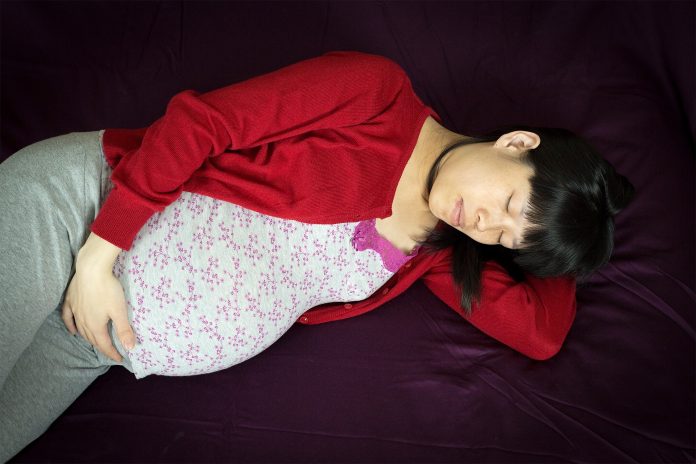
A new study led by the University of Granada, Spain, has revealed that 64% of pregnant women suffer from insomnia in the third trimester of pregnancy.
The research study included the Andalusian Health Service (SAS) and researchers from the University of Jaen, Spain, and was published in the European Journal of Obstetrics & Gynecology and Reproductive Biology.
There were 486 healthy pregnant women involved in the study who were almost in their 14th week of pregnancy (first trimester), and the effects of the pregnancy were then monitored throughout all three trimesters.
A sympathetic approach to Insomnia
The results revealed that 44% of pregnant women suffer from insomnia in the first trimester of pregnancy, which then increases to 46% in the second trimester and 64% in the third.
This is ten times higher than that of the women suffering from insomnia prior to pregnancy (6%).
Dr Maria del Carmen Amezcua Prieto, a researcher involved in the study and a lecturer at the Department of Preventive Medicine and Public Health of the University of Granada, said: “Although it is well known that pre-existing sleep problems worsen and new issues frequently arise during pregnancy, there is a tendency to assume that difficulties related to getting to sleep and restorative sleep are characteristic phenomena of pregnancy and that they must be endured.”
Prieto also points out that the health system doesn’t give enough importance to the issue during the monitoring of pregnancies “to the point where the World Health Organization (WHO) does not even address the issue of sleep in its guidelines on providing care to pregnant women”.
Problems caused by insomnia
Insomnia can affect the quality of life of pregnant women and is also a risk factor for high blood pressure, depression, diabetes, pre-eclampsia and premature birth.
Professor Aurora Bueno Cavanillas, who was also involved in the study, added: “Although it may seem obvious, the most important factor is pre-gestational insomnia, given that this is fundamental to prevention and underscores the importance of detecting insomnia before pregnancy and throughout all stages of it.”
What are the symptoms of insomnia?
• Difficulty falling asleep at night;
• Not felling well rested after a night’s sleep;
• Irritability, anxiety or depression;
• Waking up during the night; and
• Waking up too early.























